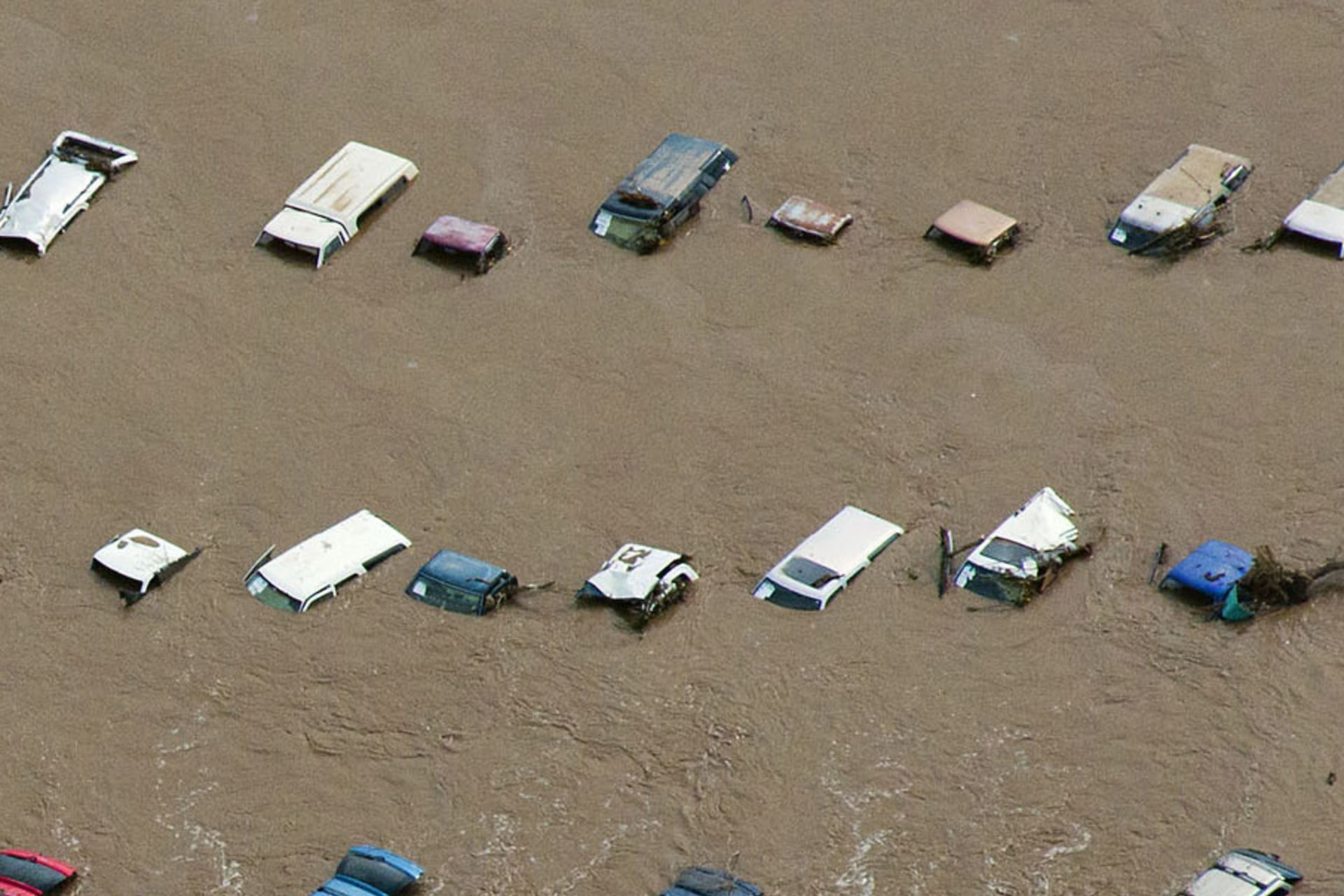IRAQ: Finding WMDs
Published
This publication is now archived.
Did the Bush administration exaggerate the evidence of Iraq’s weapons of mass destruction?
Yes, say skeptics who claim the failure to date to find stockpiles of weapons of mass destruction (WMD) calls into question the Bush administration’s justification of the Iraq war. Administration officials fiercely disagree, saying that the war wasn’t motivated solely by Iraq’s suspected weapons arsenal and, in any case, that they are confident evidence of WMD will eventually be discovered.
What is the fallout for the administration if no weapons are found?
It raises disturbing questions about the quality of intelligence collected and its uses. The United States could lose credibility with allies in future international conflicts. Carl Levin of Michigan, the senior Democrat on the Senate Armed Services Committee, wrote on June 15 in the Detroit News, “International support for taking military action, particularly pre-emptive action, will depend on the extent to which the evidence the United States offers to back up its action is seen by the world as reliable and trustworthy.”
Has the lack of WMD turned U.S. public opinion against the administration?
Some say the administration risks losing the trust of its domestic constituency. According to a CBS News survey conducted on June 11 and 12, 58 percent of Americans polled said it’s important to find proof of weapons of mass destruction and 44 percent said U.S. officials had exaggerated the threat. In the same poll, though, President Bush’s approval rating remained high--66 percent--and about the same percentage of respondents said they were confident that WMD would be found.
How has the administration responded to charges it overstated the case?
Administration officials deny the charge that they exaggerated the evidence or selectively chose data to bolster their case for war. They point out that U.S. leaders— including prominent Democrats like Bill Clinton and members of his administration— have long argued that Iraq sought WMD. National Security Adviser Condoleezza Rice and Secretary Powell appeared on talk shows in early June to defend the administration’s case. “Iraq had a weapons program,” President Bush said June 9. “Intelligence throughout the decade showed they had a weapons program. I am absolutely convinced with time we’ll find out they did have a weapons program.”
Who are the critics?
Some of the most prominent critics are congressional Democrats, including senators Levin and Joseph R. Biden Jr. of Delaware. Biden, the senior Democrat on the Senate Foreign Relations Committee, was quoted as saying administration officials “took the truth and they embellished it.” Levin has called for a bipartisan congressional probe of the administration’s use of prewar intelligence about Iraqi weapons.
Will Congress investigate?
Yes. The Senate Intelligence Committee will start closed-door hearings this week to review the intelligence on Iraq’s weapons. The House Intelligence Committee also plans hearings. Democrats are pushing for public hearings, but the Republicans, who are in the majority, have yet to agree.
Are there other investigations?
Yes. British legislators have also begun to review prewar intelligence. Prime Minister Tony Blair was Bush’s steadiest ally in the war in Iraq. The majority of the British public was antiwar, however, and the Blair government’s documentation of Saddam’s alleged arsenal has been harshly criticized. The most glaring misuse of information, critics say, is the allegation that Iraq attempted to import large quantities of uranium from Niger. Britain released a report in September that made this claim, but the documents on which the accusation was based were later proved to be forged. President Bush also cited the Niger evidence in his January State of the Union address.
What was the administration’s case for war?
Saddam Hussein’s possession of unconventional weapons, in violation of numerous United Nations resolutions, formed the heart of the administration’s pro-war argument. Other justifications for war included the desire to free Iraqis from a brutal dictator and the fear that Saddam’s regime supported al-Qaeda and other terror organizations or would supply terrorists with WMD. The case was laid out in detail in Bush’s 2003 State of the Union address and Secretary of State Colin Powell’s February 5 presentation to the United Nations Security Council.
What evidence did officials offer of Iraq’s banned weapons programs?
Because they lacked an overwhelming amount of hard proof, U.S. officials and others tried to establish Iraq’s guilt indirectly. They cited several instances in the past when Iraq was known to have possessed banned weapons or the materials to make them, and then pointed out that Iraq had failed to offer credible explanations to account for them. They said that if the weapons had been destroyed, there would have been physical evidence, records, or eyewitness accounts to back up Baghdad’s claims. Iraq did not supply the information.
What banned weapons did Iraq fail to account for?
In various speeches, statements, and briefings, President Bush, Secretary Powell, and Hans Blix, head of the U.N. Monitoring, Verification, and Inspection Commission (UNMOVIC), cited several examples:
- Anthrax. The United Nations in 1999 concluded Iraq had the ability to produce more than 25,000 liters of the biological warfare agent; Bush said that amount is “enough doses to kill several million people.”
- VX. Blix said Iraq had not adequately addressed UNMOVIC’s questions about a suspected program to produce the deadly chemical agent and whether it had been weaponized. Bush said U.S. intelligence reports indicated Iraq could produce as much as 500 tons of “ sarin,mustard, and VX nerve agent.”
- Botulinum. Bush said the United Nations reported in 1999 that Iraq could produce more than 38,000 liters of botulinum nerve toxin, the single most toxic substance known to science.
- Munitions. Bush said U.S. intelligence shows Iraq has more than 30,000 munitions capable of delivering chemical agents. Powell, in his February 5 presentation, said Iraq hadn’t accounted for 500 mustard gas artillery shells.
- Weapons inspectors found 16 122-millimeter chemical rocket warheads in mid-January. Iraq said they were part of a group of 2,000 rockets dating from the 1991 Gulf War; Iraqi officials said the 16 had been misplaced. Blix said 6,500 Iraqi bombs were missing; together, he said, they could deliver 1,000 tons of chemical agents.
- Growth medium. Blix said approximately 650 kilograms of bacterial growth medium were missing. Iraqi officials conceded in 1999 they had imported the medium, which can be used to cultivate germs, but an Iraqi weapons declaration issued December 7 failed to mention it. Blix said the amount of missing growth medium could produce “about 5,000 liters of concentrated anthrax.”
- Unmanned aircraft. U.S. officials said Iraq had developed pilot-less aircraft that could be used to disperse biological and chemical weapons.
- Mobile laboratories. U.S. officials said they learned from Iraqi defectors that Iraq had built several mobile laboratories to produce biological weapons.
Did Iraq have a nuclear weapons program?
According to U.N. weapons inspectors, there was no evidence in 2003 that Iraq had an active nuclear weapons program. Mohamed ElBaradei, the head of the U.N.’s International Atomic Energy Administration (IAEA), said in January 2003 that if inspectors were able to continue their work for “the next few months,” they could “provide credible assurance that Iraq has no nuclear weapons program.” Weapons experts note that Iraqi scientists retained the technical know-how to build nuclear weaponry.
What was the U.S. view?
Officials said Iraq lacked only the necessary fissile material to produce a nuclear bomb. As a result, they said, Baghdad tried to import high-strength aluminum tubes that could be used in gas centrifuges to make weapons-grade uranium. The IAEA disputed that interpretation of the tubes’ use. Powell also told the Security Council that Iraq tried to acquire “magnets and high-speed balancing machines” that could be used to enrich uranium.
Have any weapons been found so far?
Teams of American inspectors have uncovered two trailers that U.S. officials say are mobile laboratories that could have produced biological agents. Unnamed intelligence analysts have been quoted in the press questioning that conclusion. The Central Intelligence Agency announced June 11 that former weapons inspector David Kay will be sent to Iraq to oversee the hunt for WMD. He will work with the Pentagon search team, the 1,400-member Iraq Survey Group.
Why haven’t weapons been found?
Critics say there are probably few or none to be found. But Secretary of Defense Donald Rumsfeld, speaking on May 27 at a Council on Foreign Relations meeting, noted that “[Iraq] is a country the size of California.” He added: “It is not as though we’ve managed to look every place. There are hundreds and hundreds of suspect chemical, biological, or nuclear sites that have not been investigated as yet.” According to Rumsfeld and others, plenty of promising leads remain.
What leads are they following?
Administration officials and their backers have stressed recently that interviews with Iraqi scientists and others who worked on illegal programs will provide detailed information about Saddam’s weaponry. Ahmad Chalabi, a co-founder of the Iraqi National Congress, an opposition group, said that “there were thousands of people, engineers, and scientists [working on illegal programs], they know where the weapons are.” Others say the technical documents found by search teams will provide clues. “People who say there are no weapons are going to be quite embarrassed within weeks or months, when the material comes out,” an anonymous senior U.S. official told The Washington Post.t





